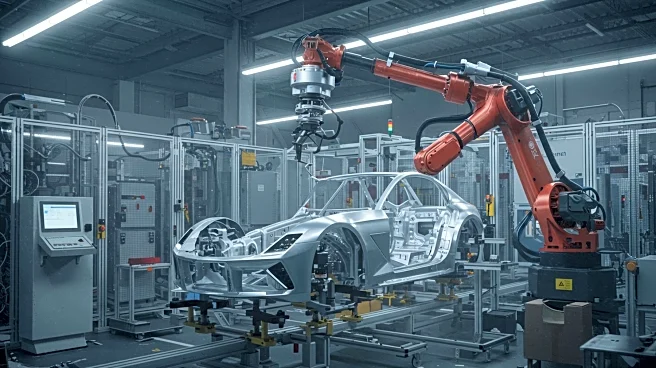What's Happening?
Ford is transforming its traditional car manufacturing process with the introduction of the Universal EV Production System. This new system divides the conventional single assembly line into three distinct sections, each responsible for assembling major parts of the vehicle: the front, rear, and center. This innovative approach is part of Ford's $5 billion investment aimed at creating a modular electric vehicle ecosystem. The system is designed to enhance efficiency and reduce costs, with the first implementation at the Louisville Assembly Plant in Kentucky. This plant will produce a new $30,000 electric pickup truck by 2027, utilizing large aluminum unicasting pieces to replace numerous smaller parts, thus simplifying the assembly process.
Why It's Important?
The introduction of the Universal EV Production System marks a significant shift in automotive manufacturing, potentially setting a new standard for the industry. By streamlining the assembly process, Ford aims to reduce production time by up to 40%, which could lead to lower vehicle costs and increased competitiveness in the electric vehicle market. This move is crucial as the automotive industry shifts towards sustainable energy solutions. The investment in the Louisville plant, along with the creation of 2,200 jobs, underscores Ford's commitment to innovation and economic growth in the U.S. automotive sector.
What's Next?
Ford's new production system is expected to be a game-changer in the manufacturing of electric vehicles. As the company rolls out this system, it will likely influence other automakers to adopt similar strategies to remain competitive. The success of this system could lead to further investments in EV production facilities and potentially accelerate the transition to electric vehicles across the industry. Stakeholders, including employees, suppliers, and consumers, will be closely watching the outcomes of this innovative approach.









